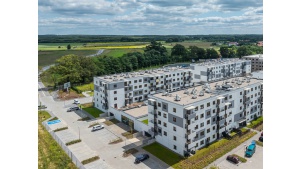Mindspace - global employee wellbeing survey
Mindspace, a global flexible workspace provider, unveiled the results of a recent survey of employees from industries worldwide regarding shifting sentiment towards the workplace. Their latest Employee Wellbeing Data Report reveals that an astonishing 9 out of 10 employees consider wellbeing facilities and offerings to be critical when choosing a workplace, and 82% expect support from their employers in achieving a work-life balance.
Whilst the trend of “quiet quitting” may be abating and the return-to-office mandates are increasing, the survey suggests that attitudes towards the workplace and work-life balance continue to shift, with the majority of employees putting more emphasis on mental and physical health and overall wellbeing. Employee wellbeing has become a critical tool for empowering employee productivity and maintaining retention, which companies will need to take into account in order to remain competitive.
The report also explores the most impactful ways in which employees feel their employers should support their overall wellbeing. 43% of participants said the benefit with the greatest impact on employee wellbeing was flexible working hours. Other benefits mentioned include flexibility regarding work location (21%), free healthy meals (24%), more vacation days (33%), improved health insurance (16%) and physical amenities such as on-site gyms.
When asked about the negative effects of workplaces where wellbeing was not prioritized, 25% said such environments adversely affected their desire to stay at the company – half of respondents (50%) said they believed workers’ motivation would be most affected, followed by productivity (48%) and creativity (28%).
The survey aimed to highlight the global workforce’s current sentiment towards employers’ wellness offerings, the importance of a wellness-focused employer as a variable when choosing a new job or deciding to stay at a current place of work, as well as tangible ways that employers could support employee wellbeing.
“With companies large and small gradually demanding their employees return to the office, now is the time for employers to rethink a future of work that incorporates flexible working options with regard to work hours and location, and that places more emphasis on benefits enhancing employee wellbeing,” said Dan Zakai, Mindspace CEO and Co-Founder. “This latest survey suggests that employees are taking a more holistic approach to their workplace – with growing expectations for hybrid work models, amenities that support work-life balance, or enhanced healthcare coverage. Companies that believe in returning to the office and want to retain their top talent should be forward-thinking and must recognize that built-in wellness amenities are not a luxury but a strategic necessity to promote wellbeing, to boost retention and to drive organizational success.”
Mindspace conducted the survey based on interviews of 2,000 office workers across the U.S., U.K., Germany, the Netherlands, Poland, Romania and Israel.

Łotewski producent wysokiej jakości domów prefabrykowanych wchodzi na polski rynek

Deweloperzy ukrywają ceny mieszkań. Z troski o klientów czy swoje portfele?

Więcej przestrzeni, mniej hałasu – dlaczego Polacy coraz częściej wybierają przedmieścia?
Więcej ważnych informacji
 Jedynka Newserii
Jedynka Newserii

 Jedynka Newserii
Jedynka Newserii

Ochrona środowiska

Kraje dotknięte powodzią z 2024 roku z dodatkowym wsparciem finansowym. Europosłowie wzywają do budowy w UE lepszego systemu reagowania na kryzysy
W lipcu Parlament Europejski przyjął wniosek o uruchomienie 280,7 mln euro z Funduszu Solidarności UE na wsparcie sześciu krajów dotkniętych niszczycielskimi powodziami w 2024 roku. Polska otrzyma z tego 76 mln euro, a środki mają zostać przeznaczone na naprawę infrastruktury czy miejsc dziedzictwa kulturowego. Nastroje polskich europosłów związane z funduszem są podzielone m.in. w kwestii tempa unijnej interwencji oraz związanej z nią biurokracji. Ich zdaniem w UE potrzebny jest lepszy system reagowania na sytuacje kryzysowe.
Handel
Nestlé w Polsce podsumowuje wpływ na krajową gospodarkę. Firma wygenerowała 0,6 proc. polskiego PKB [DEPESZA]

Działalność Nestlé w Polsce wsparła utrzymanie 45,2 tys. miejsc pracy i wygenerowała 20,1 mld zł wartości dodanej dla krajowej gospodarki. Firma przyczyniła się do zasilenia budżetu państwa kwotą 1,7 mld zł – wynika z „Raportu Wpływu Nestlé” w Polsce przygotowanego przez PwC na podstawie danych za 2023 rok.
Polityka
M. Kobosko: Surowce dziś rządzą światem i zdecydują o tym, kto wygra w XXI wieku. Zasoby Grenlandii w centrum zainteresowania

Duńska prezydencja w Radzie Unii Europejskiej rozpoczęła się 1 lipca pod hasłem „Silna Europa w zmieniającym się świecie”. Według zapowiedzi ma się ona skupiać m.in. na bezpieczeństwie militarnym i zielonej transformacji. Dla obu tych aspektów istotna jest kwestia niezależności w dostępie do surowców krytycznych. W tym kontekście coraz więcej mówi się o Grenlandii, autonomicznym terytorium zależnym Danii, bogatym w surowce naturalne i pierwiastki ziem rzadkich. Z tego właśnie powodu wyspa znalazła się w polu zainteresowania Donalda Trumpa.
Partner serwisu
Szkolenia

Akademia Newserii
Akademia Newserii to projekt, w ramach którego najlepsi polscy dziennikarze biznesowi, giełdowi oraz lifestylowi, a także szkoleniowcy z wieloletnim doświadczeniem dzielą się swoją wiedzą nt. pracy z mediami.

![Nestlé w Polsce podsumowuje wpływ na krajową gospodarkę. Firma wygenerowała 0,6 proc. polskiego PKB [DEPESZA]](https://www.newseria.pl/files/1097841585/fabryka-nesquik_1,w_85,r_png,_small.png)






.gif)

 |
| |
| |
|